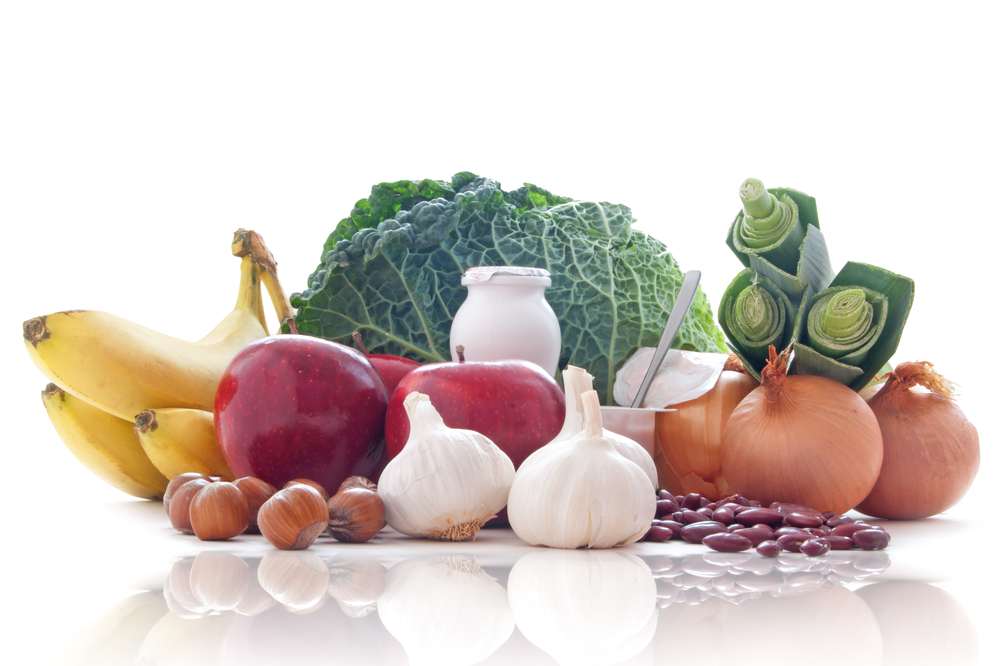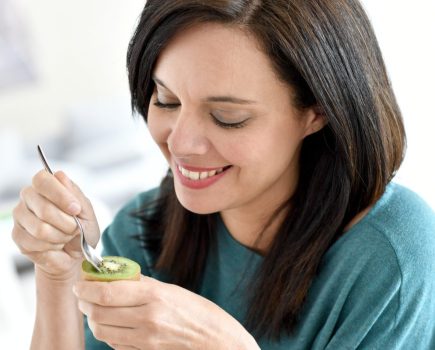Prebiotic foods are a great way to promote good gut health. They work by feeding and strengthening existing bacteria in the tummy, which can help boost your immune system and keep your digestive system happy.
What are prebiotics?
Most prebiotic benefits can be found in foods rich in fibre, such as fruit, vegetables, seeds and nuts.
What are the benefits of prebiotics?
As well as helping your gut stay healthy, an Australian survey found that a diet rich in prebiotics also keeps you fuller for longer, can reduce the symptoms of IBS, helps boost immunity, helps to protect you from gut infections and increases your uptake of minerals like calcium and magnesium.
How many prebiotic foods do you need to eat?
The good news is that most balanced diets are packed with prebiotics to keep the microbiota in our tummies happy. Reaching your five-a-day (or more!) and eating nuts, seeds and whole grains daily is the best way to ensure a diet rich in prebiotics.
Raw foods generally have more benefits than cooked, so add some raw fruit and veg to your handbag for snacking.
There are a lot of different options to try, but these are some of the best prebiotic foods:
- Garlic
- Raw or cooked onions
- Carrots
- Banana (read more about the health benefits of bananas!)
- Flax seeds
- Chia seeds
- Chicory root
- Jerusalem artichoke
- Asparagus
- Tomatoes
- Leeks
- Radishes
- Quinoa
- Dandelion greends
- Apple cider vinegar
- Raw honey
- Barley
- Oats
- Apples
- Cocoa
- Wheat bran
- Seaweed
- Psyllium husks
- Nectarines
- Berries
- Watermelon
- grapefruit
- Persimmon
- Dried fruit
- Spring onion
- Green peas
- Savoy cabbage
- Shallots
- Sweetcorn
- Potato
- Burdock root
- Snow peas
- Chicory
- Lentils
- Baked beans
- Chickpeas
- Soy beans
- Read kidney beans
- Couscous
- Rye bread
- Rye crackers
- Wheat bread
- Pasta
- Gnocchi
- Whole hemp seeds
- Pistachios
- Cashews
- Kefir (also a probiotic)
- Rice
Now discover probiotic foods!
- More tips on keeping your gut healthy









